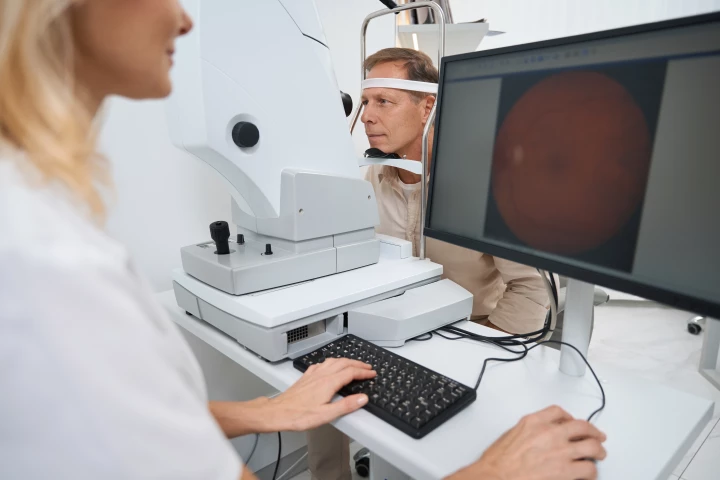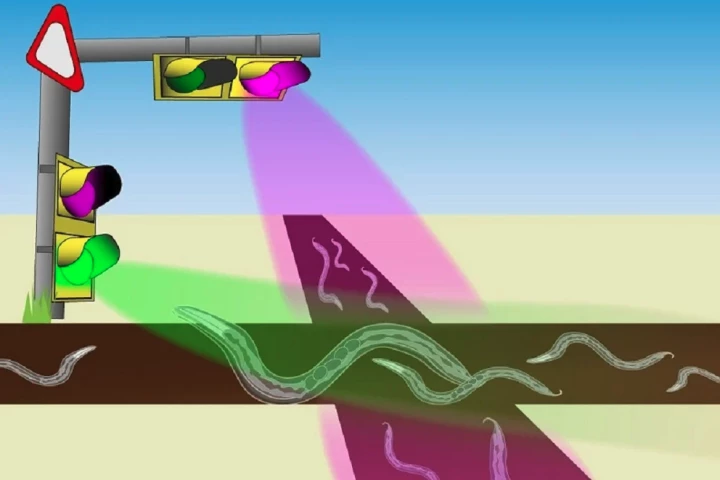Optogenetics
-
Manipulating brain cells called astrocytes using light prevented the retention of fear memories long-term, according to new research. This opens the door to potential treatments for conditions like PTSD, which is characterized by abnormal fear memory.
-
For the first time, scientists have identified a marker in the retina that may lead to Parkinson’s disease, and it can be detected early, which could be life-changing for those at risk of developing this or other degenerative conditions.
-
Scientists have developed a new way to tap into the incredible data storage density of DNA in a more scalable way. A “biological camera” imprints images into the DNA of living cells, tagged with barcodes to retrieve data.
-
Scientists in Japan have demonstrated a technique that allows them to remotely control the movements of worms. By implanting light-sensitive proteins into the organisms, the team was able to make them move under green light and stop under UV.
-
Ordinarily, pacemakers correct irregular heartbeats by delivering an electric shock to the entire heart – which can be painful. An experimental new one takes a different approach, and it does so by encompassing the heart with light-emitting "petals."
-
Optogenetics is a very promising technique – among other things, it may one day be used to reduce anxiety, treat addiction, and even reverse blindness. A newly developed device could soon also make it considerably less invasive, and thus more doable.
-
We're seeing some significant advances in efforts to leverage light-sensitive proteins to improve human health, a field known as optogenetics, but new research out of Germany flips the script on this emerging technology.
-
In a major breakthrough for regenerative medicine, scientists have partially restored vision in a blind man using an emerging technique called optogenetics, which enabled the patient to locate and identify objects for the first time in decades.
-
Scientists have used a novel implant to program social interactions between mice for the first time, which they say lays the groundwork for better understanding the way hierarchies and relationships are formed in complex groups of individuals.
-
A research team has demonstrated how using light to target specific brain cells, a technique called optogenetics, might work to tackle epilepsy, by using the approach to prevent seizures in mouse models of the disease.
-
Medical implants that help regulate activity in the brain could go a long way to treating conditions like Parkinson's and depression, and scientists have just developed one with some very useful functionality.
-
When an obese person really needs to lose weight, gastric bypass surgery is sometimes performed – but it's quite an invasive procedure. An experimental new implant, however, may produce similar results with much less fuss.
Load More











